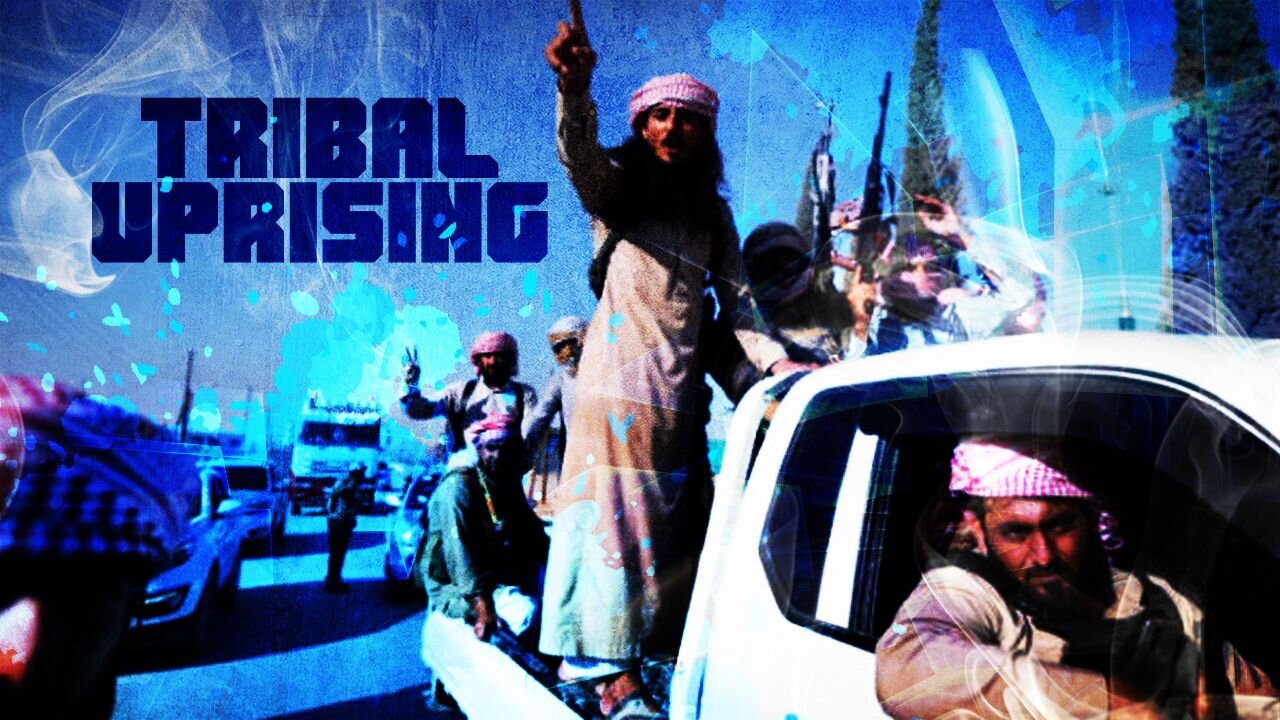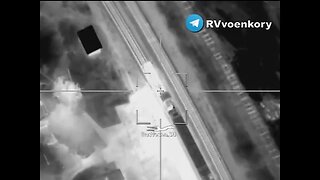Premium Only Content

U.S. Proxies Face Tribal Uprising In Northern, Eastern Syria
Arab tribes in northern and eastern Syria are now waging an armed uprising against the Kurdish-led Syrian Democratic Forces (SDF), the United States main proxy in the country.
The uprising began late on August 27 after the SDF arrested Rashid Abu Khawla, the leader of its largest Arab faction, the Deir Ezzor Military Council (DMC), and launched a security operation within its areas in the governorate in cooperation with the U.S.-led coalition.
Arab tribes in Deir Ezzor led by Sheikh Ibrahim al-Hafel, a prominent leader of the influential Al Uqaydat, quickly rose against the SDF, attacking the groups bases and checkpoints in the eastern and southeastern countryside of the governorate.
Clashes were reported close to the U.S.-led coalition bases at the Conoco gas plant in the eastern Deir Ezzor countryside and al-Omar oil fields in the southern countryside of the governorate. However, the coalition didn’t intervene.
On August 31, the SDF said that Abu Khawala was arrested over his involvement in serious crimes and violations, including communicating with an “anti-revolution” foreign power, drug trafficking, abuse of power and facilitating ISIS operations in Deir Ezzor.
The next day, September 1, clashes spread to the northern Aleppo countryside. Tribal fighters backed by Turkey launched an attack against the SDF-held town of Manbij. The fighters stormed several positions of the Syrian Arab Army to the north of the town. In response, the Russian Aerospace Forces launched several airstrikes against their gatherings and positions.
On September 3, Turkish-backed tribal fighters launched two new attacks against the SDF from the directions of the town of Ras al-Ayn in the northern al-Hasakah countryside and Tell Abyad in the northern Raqqa countryside. Both attacks were quickly repelled.
On the same day, the U.S. embassy in Syria announced that State Department and coalition officials had met with SDF officials and tribal leaders in northern and eastern Syria to try to end the conflict. Still, no agreement was reached.
On September 6, the SDF managed to enter the key town of Diban in the southeastern countryside of Deir Ezzor, the stronghold of Sheikh al-Hafel. However, the tribal leader was not arrested and clashes continued near the town and in other parts of the governorate.
According to the Syrian Observatory for Human Rights, the conflict in Deir Ezzor has so far claimed the lives of 90 people, including 57 tribesmen, 24 SDF fighters and nine civilians.
The tribal uprising in Deir Ezzor will not likely come to an end any time soon. SDF influence in the governorate and other Arab areas in northern and eastern Syria is clearly weakening. While Arab tribes in the governorate have not yet taken any stance against the U.S.-led coalition, which maintains two bases on their territory, there were reports of cooperation and communication between them and Syrian government forces who control the western bank of the Euphrates River.
Mirrored - South Front
-
 0:32
0:32
Concerned for Truth
5 months agoAttack on a train carrying supplies for Ukrainian Armed Forces attacks in Kursk Oblast
288 -
 LIVE
LIVE
JuicyJohns
5 hours ago🟢#1 REBIRTH PLAYER 10.2+ KD🟢$500 GIVEAWAY SATURDAY!
121 watching -
 DVR
DVR
Neil McCoy-Ward
1 hour agoVengeance: JD Vance Has A Bold Plan to FREE the UK & EU… (What We Know So Far)
3 -
 1:50:34
1:50:34
Steven Crowder
4 hours ago🔴 Texas Gerrymanders for Trump & Dems Freak: Racism or Good Politics?
283K181 -
 DVR
DVR
Flyover Conservatives
12 hours agoTwo Stories Shaking the Internet—Sydney Sweeney’s “Offensive” Ad & Forrest Frank’s Miraculous Healing | FOC Show
5.38K5 -
 LIVE
LIVE
The Mel K Show
2 hours agoMORNINGS WITH MEL K -Killing Operation Mockingbird: The Truth Has No Agenda 8-4-25
1,485 watching -
 1:06:13
1:06:13
The Rubin Report
2 hours agoDave Tries Controversial New Medical Tech — Was It a Miracle or a Bust?
15.4K20 -
 LIVE
LIVE
The Shannon Joy Show
3 hours ago🔥🔥Trump Deploys Nuclear Submarines, JD Vance Promises To Investigate The Aliens & The Epstein Re-Brand Begins🔥🔥
257 watching -
 LIVE
LIVE
LFA TV
15 hours agoLFA TV ALL DAY STREAM - MONDAY 8/4/25
4,036 watching -
 1:00:15
1:00:15
VINCE
5 hours agoThe Obama Connection No One Is Talking About | Episode 95 - 08/04/25
181K258